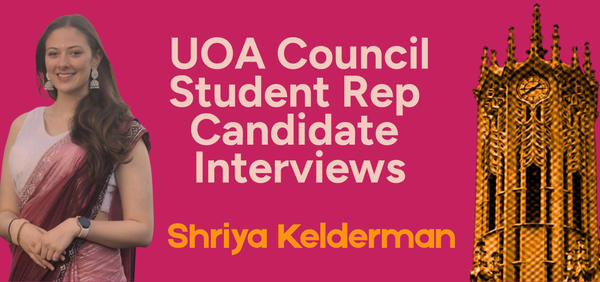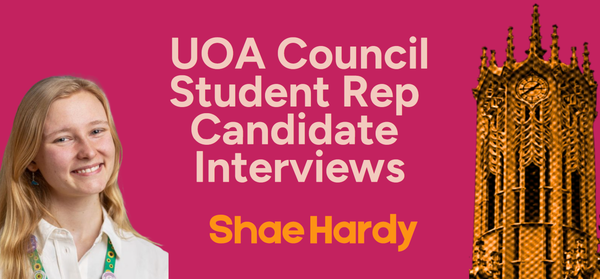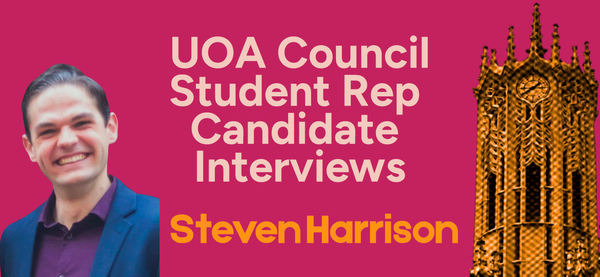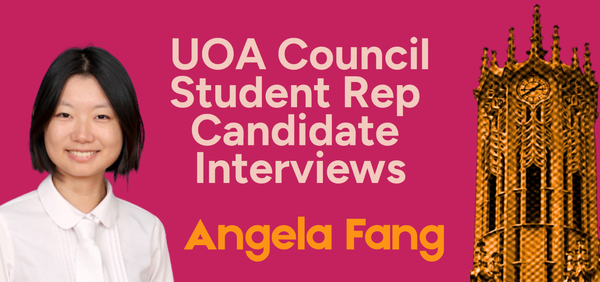
Interview with Gevargis Thomas | UOA Council Student Rep Candidate
Interview with Gevargis Thomas | Vote now in the University Council Student Rep Elections!


Interview with Gevargis Thomas | Vote now in the University Council Student Rep Elections!

Interview with Matthew Prance | Vote now in the University Council Student Rep Elections!

Interview with Shriya Kelderman | Vote now in the University Council Student Rep Elections!

Interview with Shakeel Shamaail | Vote now in the University Council Student Rep Elections!

Interview with Shae Hardy | Vote now in the University Council Student Rep Elections!

Interview with Steven Harrison | Vote now in the University Council Student Rep Elections!

Interview with Adnan Shahab | Vote now in the University Council Student Rep Elections!

Interview with Angela Fang | Vote now in the University Council Student Rep Elections!

Check out these 5 cool clubs at Waipapa Taumata Rau | University of Auckland!

On this weeks edition of Irene Eats, the katsu chicken meal from The Bowl was the star of the show.

Trains, treasures, and the rivers under us.

Trying out the Budgie Meal from Conscious Eats!